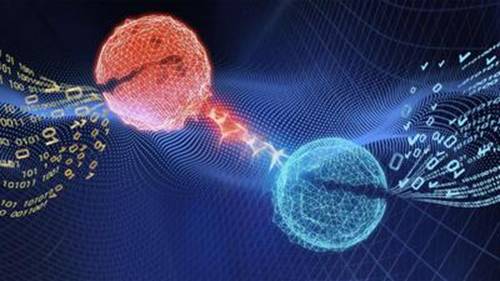


Schematic diagram shows the generation of quantum random number based on quantum entanglement
Pan Jianwei, a professor at the University of Science and Technology of China and his colleagues Zhang Qiang, Fan Jingyun, Ma Xiongfeng and others recently realized the device independent quantum random number generation (DIQRNG)with the assistance of Shanghai Institute of Microsystem and Information Technology of the Chinese Academy of Sciences and Japan’s NTT Basic Research Laboratories.
The research is based on the development of high quality entangled light source and high efficiency single photon detector.
The scientists use the intrinsic randomness of quantum entanglement to realize DIQRNG for the first time in the world. Their finding was published in the scientific journal Nature on Sept 20.
It will be widely used in numerical modeling and cryptography and is expected to form a new international standard for random numbers.
Random numbers have important applications in scientific research and daily life: for instance, weather forecasting, development of new drug, new materials and nuclear weapon often need to be calculated by numerical modeling, and the key of numerical modeling is the input of a large number of random numbers.
In the fields like games and artificial intelligence, random numbers are needed to control the evolution of systems; in telecommunication security and modern cryptography, random numbers, which shall be completely unknown to third parties, are needed as the basis of security.
Source: University of Science and Technology of China; Shanghai Institute of Microsystem and Information Technology, CAS